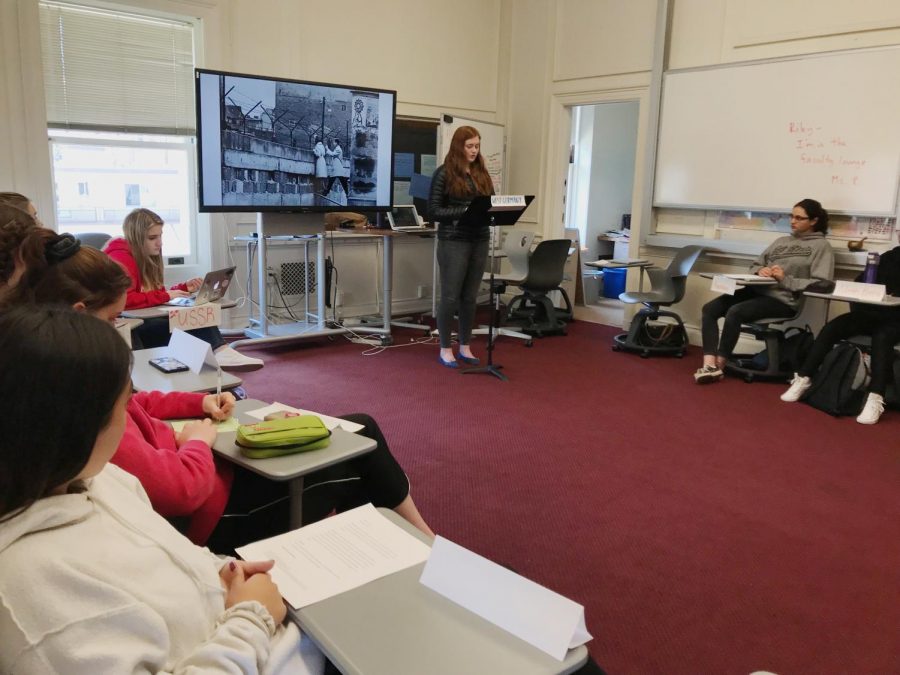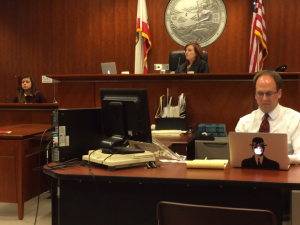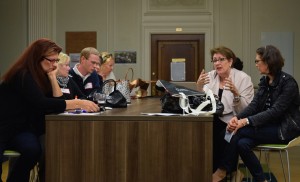Sophomores simulate United Nations conference
Sophomore Lauren Tulley represented West Germany in the mock UN conference. Students were required to add a picture to their speech to supplement their performance.
May 16, 2018
WEB EXCLUSIVE After two weeks of selecting and researching a country involved in the Cold War, sophomores represented their countries in a mock United Nations meeting today.
“In order to prepare for my speech which was about the Cambodian dictator, Pol Pot, I practiced in front of my family, filmed myself and rewatched the film,” sophomore Miley Sherman said. “I did this to see my different speaking habits and whether they negatively or positively impacted my speech.”
In the classes leading up to the mock UN meeting, students were given class time to research and write a 5 to 7 minute speech that explained how their country was affected during the Cold War. They were also required to include a request to the United Nations in their speech based on their countries condition after the Cold War.
“To be able to take on someone else’s perspective while listening to others is a really important skill,” history teacher Michael Stafford said. “Researching a country or group of people that is not the United States and then to be able to tell their story from their perspective during the Cold War is crucial.”
Sophomore Michelle Wang even went to the lengths of memorizing her entire speech because she wanted it to have a more professional and powerful effect on the audience.
“It took a whole day to memorize my speech but it was worth it,” Wang said. “My country was North Korea and I learned that North Korea entered into the war but then backed out due to mass deaths right after the United States got involved. They then wanted to negotiate with the United States to try and stop the war.”
Students such as Sherman enjoyed the project because they got to represent controversial perspectives.
“This project was an excellent learning experience, and by being Pol Pot who was a very violent and horrible dictator, I got to see history from a different point of view,” Sherman said. “I also liked it because most teachers give an essay or a test to evaluate our knowledge, but Mr. Stafford gave us the opportunity to go into depth and learn more about our selected country in more of a performance atmosphere.”












